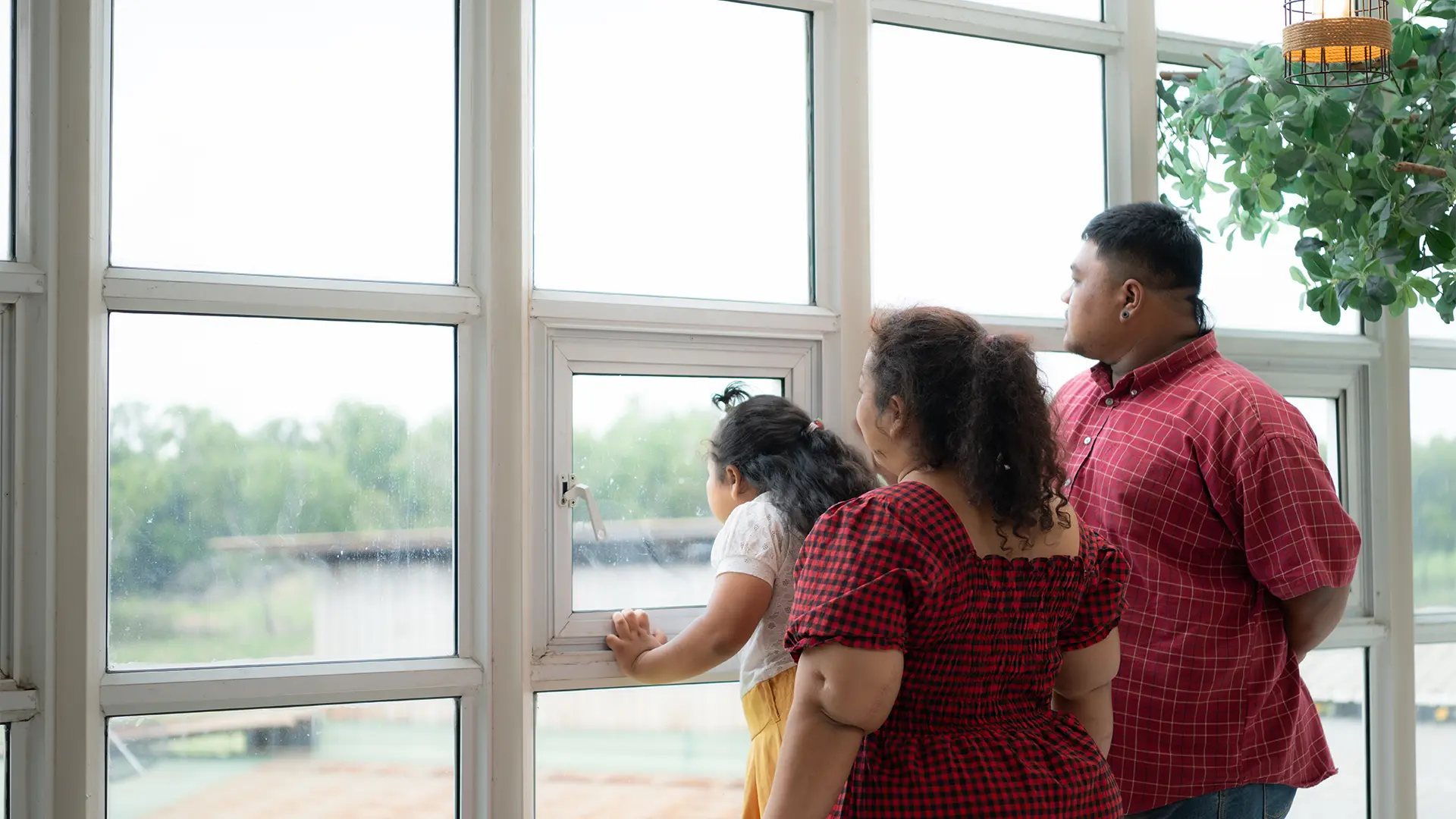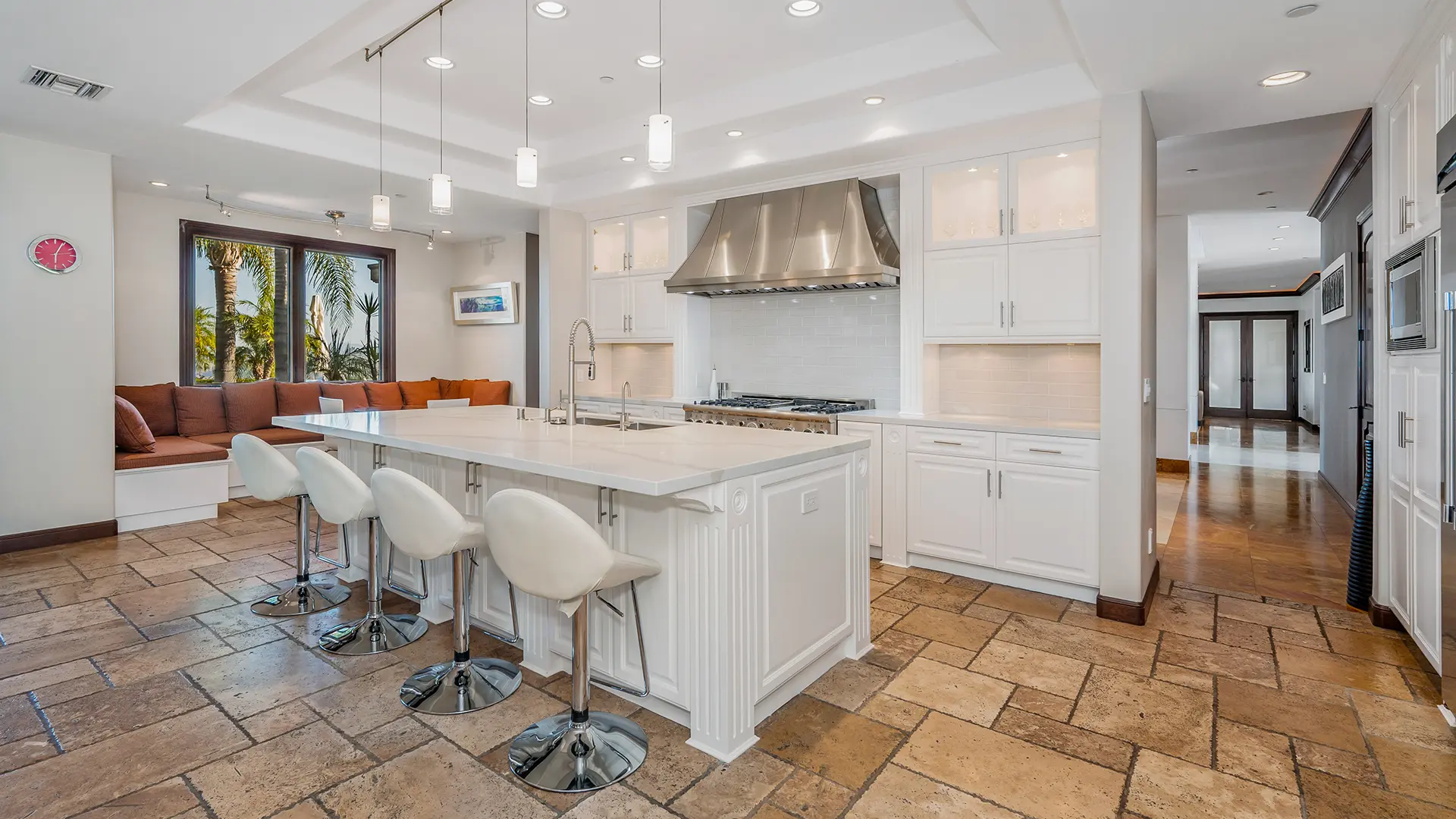When it comes to hurricane-resistant windows and doors, the materials you choose matter. In coastal areas like Naples, Florida, having sturdy, high-quality protection is crucial—not just for storm season, but also for everyday security, energy efficiency, and noise reduction. Two popular options are aluminum and PVC (polyvinyl chloride). Below, we explore the key differences to help you make an informed decision.
1. Durability & Strength
- Aluminum: Known for its lightweight yet robust structure, aluminum frames stand up well to strong winds, debris impact, and corrosion. High-quality aluminum is treated to resist rusting, making it a favored option for coastal climates.
- PVC: PVC frames are also durable, but they rely on their internal reinforcement and design quality. While they can offer excellent impact resistance when paired with the right glass, aluminum generally outperforms PVC in terms of long-term structural strength.
Verdict: If maximum durability over the long haul is your top priority, you might lean toward aluminum. However, a well-manufactured PVC product can still offer strong protection against storms.
2. Maintenance
- Aluminum: Requires very little upkeep. Modern aluminum frames often come with protective coatings that minimize fading and corrosion. Occasionally, you’ll need to clean and inspect for any signs of damage or wear.
- PVC: PVC frames are also low-maintenance. They don’t rust, and regular cleaning can keep them looking fresh. Over time, however, PVC may be more prone to discoloration if exposed to intense sun without a proper protective coating.
Verdict: Both materials are relatively low-maintenance, though aluminum’s tendency to resist UV damage and corrosion can sometimes give it an edge.
3. Energy Efficiency
- Aluminum: Historically, aluminum wasn’t the best at insulation due to its high thermal conductivity. However, modern aluminum frames often include thermal breaks—insulating materials within the frame that significantly improve energy efficiency.
- PVC: Naturally insulating, PVC can help maintain stable indoor temperatures, reducing heating and cooling costs. It’s often considered a top-tier option for energy efficiency, especially if installed correctly with the right glass.
Verdict: PVC tends to have the edge in natural insulation, but advanced aluminum frames with thermal breaks can still offer high energy efficiency.
4. Aesthetics
- Aluminum: Known for its sleek, modern look. Aluminum frames can be powder-coated in various colors, and their thinner profile allows for larger glass surface areas—making them popular for contemporary designs.
- PVC: Typically comes in neutral colors like white or beige, though some manufacturers offer more variety. The frames can be thicker, which some homeowners may find less visually appealing, but it can also provide a more traditional or classic look.
Verdict: Aluminum often wins in the style department, offering a broader range of modern finishes and slimmer profiles. PVC’s design options are expanding but still more limited than aluminum’s.
5. Cost Considerations
- Aluminum: Often considered a premium option due to its durability and modern aesthetic. The initial cost can be higher, but the long-term benefits like reduced maintenance and excellent lifespan can offset that investment.
- PVC: Typically more budget-friendly, making it an attractive choice for homeowners looking for hurricane impact resistance without a premium price tag. However, quality varies widely, so cheaper PVC might not perform as well over time.
Verdict: PVC tends to be the more economical choice upfront. Aluminum carries a higher initial price, but often proves cost-effective in the long run due to durability and potential resale value.
6. Lifespan & Resale Value
- Aluminum: Known for its longevity. When properly maintained, aluminum windows and doors can last 20–30 years or more, often boosting property value due to their lasting curb appeal and performance.
- PVC: A high-quality PVC frame can last just as long, but lower-grade versions may warp, discolor, or degrade faster in harsh climates. Consistent maintenance can extend PVC’s lifespan, but it may not always retain the same level of resale value as aluminum.
Verdict: Aluminum generally offers a longer lifespan and stronger potential for boosting resale value, but top-tier PVC products can still stand the test of time.
Which Material Is Best for You?
- Budget & Longevity: If you’re looking for a more cost-effective solution upfront and you opt for good-quality PVC, this could be an excellent choice. However, if you’re willing to invest for the long term and prioritize durability, aluminum is often worth the extra cost.
- Aesthetic Preferences: For a sleek, modern design and customizable colors, aluminum frames might be your top pick. If you prefer a more classic style or don’t mind a slightly thicker frame, PVC could fit the bill.
- Energy Efficiency: PVC naturally excels at insulation. Modern aluminum options with thermal breaks can also provide great efficiency, but if energy savings are your primary concern, PVC might have a slight edge.
- Maintenance & Climate: Both materials handle moisture well, but aluminum’s corrosion resistance can be a significant advantage in salty, coastal environments. PVC can discolor in harsh sunlight if it’s not a high-quality product.
FAQ: Aluminum Vs. PVC Hurricane Windows and Doors
- Q: Are both aluminum and PVC windows hurricane-rated?
A: Yes. Both aluminum and PVC frames can be manufactured to meet Florida’s strict building codes for hurricane resistance. The key is to ensure they’re paired with impact-rated glass and installed according to the manufacturer’s guidelines. - Q: Which option offers better insulation against heat and cold?
A: PVC typically offers stronger natural insulation. However, modern aluminum frames with built-in thermal breaks can also provide excellent energy efficiency—so be sure to ask about these features when choosing aluminum. - Q: Do PVC frames fade or discolor in the Florida sun?
A: Lower-quality PVC may fade or discolor over time if it lacks a proper UV-resistant coating. High-quality PVC frames, however, are manufactured to withstand intense sunlight, making discoloration less likely. - Q: Which material is more cost-effective?
A: PVC is generally more budget-friendly upfront. Aluminum often has a higher initial price, but its long-term durability and potential resale value can make it a cost-effective choice over time. - Q: How do I maintain aluminum vs. PVC windows and doors?
A: Both are fairly low-maintenance. For aluminum, wiping down frames and checking for any signs of corrosion is usually enough. PVC requires occasional cleaning to remove dirt or salt residue; quality frames with UV-resistant coatings help prevent discoloration. - Q: Are there style or color limitations with either option?
A: Aluminum frames tend to come in a wider range of colors and finishes, plus they offer slim profiles for a modern look. PVC is often available in fewer color options, though manufacturers are expanding their offerings. Be sure to explore your choices to find the style that best suits your home.
Hurricane Windows and Doors: Final Thoughts
Choosing between aluminum and PVC hurricane windows and doors comes down to weighing factors like budget, aesthetics, durability, and energy efficiency. Both materials can offer excellent storm protection—an absolute must-have in Naples, Florida’s hurricane-prone climate. Ultimately, your decision should align with your personal preferences, property needs, and long-term goals.
Have questions about which material is right for your home or business? Reach out to Re-Align Renovations. Our father-and-son team specializes in installing high-quality hurricane impact windows and doors designed to meet the unique challenges of Southwest Florida. We’re here to guide you through the selection process, ensuring you end up with a solution that keeps you safe, looks fantastic, and aligns with your budget. Contact us today for a free consultation!

